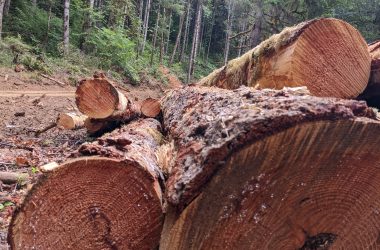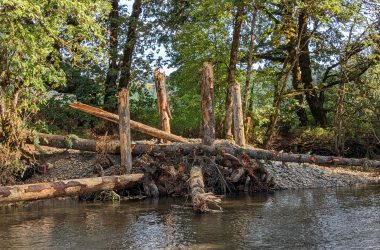
Jim Akenson, Senior Conservation Director, OHA, and Lori McKinnon, President, Coastal Farm & Ranch
Oregon Hunters Association (OHA), a group of conservation-minded sportsmen, urges Oregon Department of Fish and Wildlife (ODFW) to develop and implement a policy to enhance and conserve migratory habitat for big game, and all wildlife that make seasonal movements. Habitat connectivity, the degree to which separate habitat patches are connected, is a crucial factor for conservation of wildlife. Increases in urban and energy development has resulted in extensive habitat loss and fragmentation for many species in Oregon. Fortunately, advances in wildlife tracking technology have allowed wildlife managers to more accurately identify where animals move on the landscape, as well as impediments to wildlife space use. For ungulate species (e.g., deer, elk, pronghorn, bighorn sheep), migration corridors are fundamental to their life history, but until recently, these corridors were thought of as conduit between seasonal ranges rather than essential habitat.
Many big game migration corridors are currently obstructed by transportation infrastructure and energy development sites. Therefore, state agencies must consider the full extent of migratory habitat to better manage ungulate populations.
ODFW is making leaps and bounds through the Oregon Connectivity Assessment and Mapping Project, an innovative effort to map wildlife movement and corridors across the state. Oregon has an opportunity to ensure this new information leads to sound management solutions by developing agency policy to formally identify migration corridors.
This action will bolster current conservation projects where many groups (including OHA) are working to conserve and enhance migratory habitat. For example, OHA has pledged over $114,000 and many volunteer hours to the Gilchrist Wildlife Underpass Project aimed at reducing ungulate mortality and vehicle collisions on U.S. Highway 97. Additionally, a migration policy will frame new partnerships between private landowners, non-government organizations, and government agencies, which will result in additional conservation projects and funding sources. Recently, Coastal Farm & Ranch, after obtaining the low bid to provide fencing material, generously supported the Gilchrist Wildlife Underpass Project by providing fencing materials at a discount below their initial low bid. OHA’s Bend Chapter has invested hundreds of volunteer hours maintaining the fence that funnels wildlife to the Lava Butte wildlife underpass on U.S. Highway 97, approximately 50 miles north of the new Gilchrist underpass. The Lava Butte wildlife underpass has reduced vehicle-wildlife collisions by 86%. Individuals can support and help fund habitat connectivity and migration corridor projects by purchasing a specialized watch for wildlife license plate voucher at www.myowf.org/watchforwildlife.
Global Positioning System (GPS) wildlife tracking collars have become commonplace in wildlife management today, and this shift to more efficient and accurate technology will allow for more precise management into the future. GPS collars collect an immense amount of animal location data on fixed time schedules, and these data are ideal for describing ungulate resource selection and utilization and migratory habitat. A migration policy will assist ODFW and their partners in obtaining additional grant funding to provide wildlife professionals with additional GPS collars, which will in-turn, further our knowledge of migration corridors, resource selection, and population dynamics.
How can Oregonian’s assist with protecting wildlife and their habitats? working with their local wildlife biologist, watershed managers, ODFW commissioners and legislators to promote continued research and policy development. In addition, the public can support protection of wildlife, their habitats, and mitigation from land management, urban, and energy development and transportation infrastructure projects through County, State and Federal public comment processes.
The Oregon Hunters Association is a statewide organization with more than 10,000 members. Since 1983, we have been protecting Oregon’s wildlife, habitat and hunting heritage.





